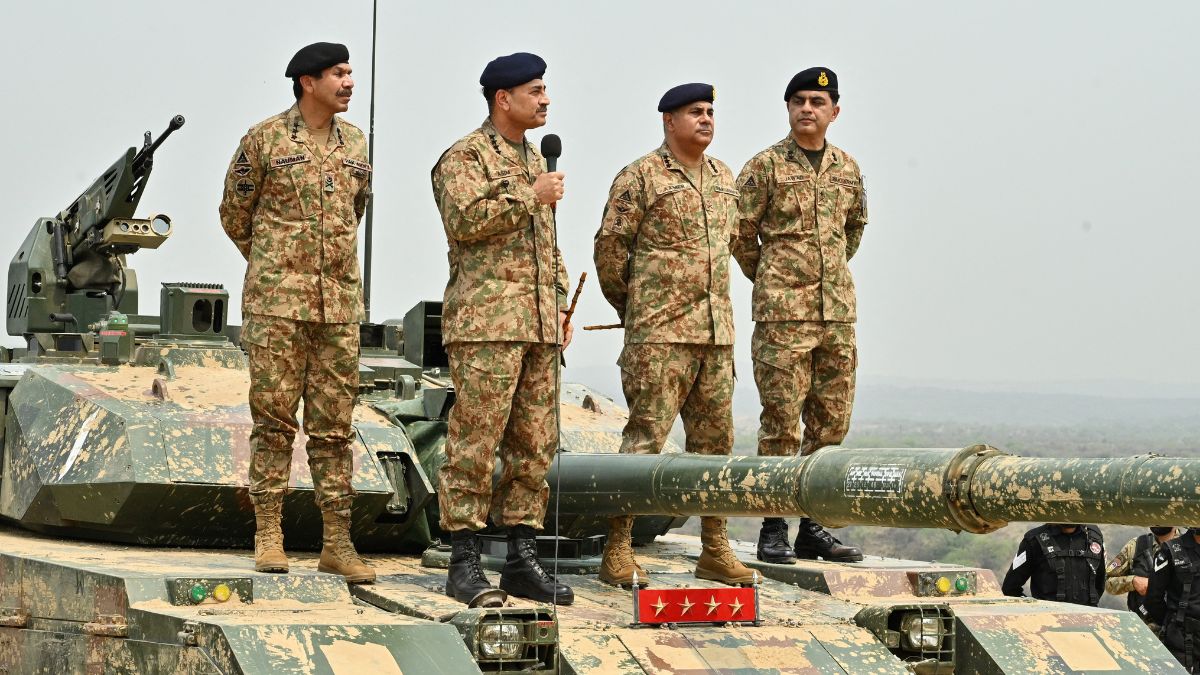Frustrated with the Taliban’s refusal to accept its terms, Pakistan has told the group to either accept terms or face a regime change campaign, sources have told CNN-News 18.
Following the worst round of cross-border clashes last month since the fall of Kabul in 2021, Pakistan and Taliban have held multiple rounds of talks mediated by Turkey and Qatar but talks appear to have reached a dead-end . Pakistan has consistently blamed the Taliban for refusing to address its concerns.
Top sources have told CNN-News 18 that Pakistan has made the final offer to Taliban: either reconcile on Pakistan’s terms or face Pakistan’s support for a regime change campaign. They said that Pakistan conveyed this final message to the Taliban through Turkey.
Since the fall of Kabul, the Taliban-Pakistan relationship has consistently fallen. After several months of rising tensions, intense cross-border clashes erupted in the border areas of Pakistan and Afghanistan after Pakistan carried out airstrikes in Afghanistan, including in Kabul. The Taliban launched attacks on Pakistani forces across the Durand Line, the line dividing Afghanistan and Pakistan that the Taliban have long rejected, and dozens were killed and hundreds injured in clashes.
ALSO READ — ‘We are in a state of war’: Pakistan blames Taliban for Islamabad suicide bombing
Pakistan has said that the Taliban have consistently refused to act against Tehrik-i-Taliban Pakistan (TTP), a separate group based in Afghanistan that is opposed to Pakistan and frequently carries out attacks inside Pakistan.
Quick Reads
View AllPakistan’s warning to topple Taliban
Amid worsening relationship, top sources told CNN-News 18 that Pakistan’s intelligence establishment has already reached out to several prominent Afghan democratic and opposition figures, such as former President Hamid Karzai, former President Ashraf Ghani, exiled Northern Resistance Front’s leader Ahmad Massoud, warlord Abdul Rashid Dostum, and members of the Afghanistan Freedom Front, and erstwhile Northern Alliance-linked commanders.
This is a head-spinning reversal of decades of Pakistan’s policy that had supported the Taliban for decades as the Islamist group fought these people and their coalitions. Pakistan actively aided the Taliban’s return to power and helped in the conflict with Northern forces.
Pakistan has offered these leaders political space, safe presence, and operational offices in Pakistan, signaling a readiness to create an organised platform for the Afghan opposition, according to sources.
WATCH: Taliban claim to capture Pakistani tank, parade it in Afghanistan
Pakistan has also offered the same offer to exiled Afghan women leaders, activists, and pro-democracy groups, who have consistently demanded a return to an inclusive, legitimate, and transparent political process either through a Loya Jirga or future elections, sources said.
The Taliban’s outreach to India has also factored into Pakistan’s decision-making, sources said.
What are Pakistan’s terms?
Publicly, Pakistan’s main terms revolve around TTP and other anti-Pakistan armed groups based in Afghanistan.
Sources said that Pakistan wants the Taliban to do the following:
Firm action against the TTP
Handover of hardcore TTP militants
Guarantees of non-escalation along the Durand Line, the disputed border
Creation of a buffer zone to curb what it calls cross-border terrorism
Normalisation of trade and bilateral cooperation
Can Pakistan topple Taliban?
Pakistan appears to be putting international pressure on Pakistan while also making the most of factionalism inside Taliban. But, despite factionalism, there does not appear to be a pro-Pakistan voice inside Taliban or a pro-Pakistan movement.
Since 2021, multiple centres of power have emerged who have often clashed.
Firstly, there is the Kandahar-based ultra-hardline faction of Supreme Leader Haibatullah Akhundzada, who has centralised power to the extent that some of the group’s tallest leaders outside of his small clerical units, such as Sirajuddin Haqqani and Mullah Abdul Ghani Baradar have been sidelined.
Secondly, there is the Haqqani faction led by Sirajuddin. Formally known as the Haqqani Network, it represents the most powerful centre after Akhundzada’s council. The Haqqani Network has sway in eastern Afghanistan and a presence in Pakistan. Sirajuddin has long been hailed as Pakistan’s principal Afghan asset.
Thirdly, there is a faction of those who handled the Taliban’s diplomacy from Doha. The faction is led by Mullah Abdul Ghani Baradar, a co-founder of the group who directed negotiations in Qatar.
ALSO READ: Who are the Haqqanis, Afghanistan’s most feared fighters?
Among these groups, tensions have risen tribal rivalries, ethnic rivalries, political differences, and the very idea of Afghanistan. For example, Baradar’s faction has called for a more pragmatic, internationally-engaged approach, and championed an ‘inclusive’ government whereas Akhundzada has adopted ultraconservative policies, such as banning education and professionally opportunities for most women and girls.
Earlier this year, even Haqqani, who has long been seen as Pakistan’s main asset in Afghanistan, publicly rebuked Pakistan.
“The people of Afghanistan may have internal problems, but they are united against foreign aggression…If you bring your problems into Afghanistan and create turmoil here, this mistake will cost you dearly,” Sirajuddin said in an apparent message to Pakistan.
Sirajuddin warned that if Pakistan continued provocations, “neither Pakistan will remain the same Pakistan nor will Greater Afghanistan remain faithful to its promises”.
)